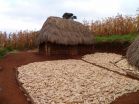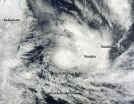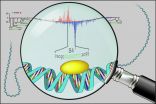INFORMATION:
For more information on Kimball's research, call him at 406-243-4922 or email johnk@ntsg.umt.edu. END
New information helps predict future climate change impacts on global tropics
2015-03-09
(Press-News.org) MISSOULA - Researchers at the University of Montana, Princeton University, Stanford University and Rutgers University, among others, are collecting new measurements of tropical forests to gain a better understanding of how they respond to seasonal climate variations.
The new information helps predict how the global tropics may react to future climate change. These findings are detailed in a paper titled "Photosynthetic seasonality of global tropical forests constrained by hydroclimate," which was published in Nature Geoscience this month.
"A better understanding of tropical forest behavior is needed because tropical forests serve as the lungs of the Earth," said UM Professor John Kimball, a contributor to the study. "Tropical forests breathe in carbon dioxide - a potent greenhouse gas - and store it as vegetation biomass through photosynthesis."
According to Kimball, carbon storage is a critical ecosystem service that's vulnerable to human impacts from deforestation and climate change. Because of this, monitoring and measuring its seasonal changes is key to predicting how much of the global tropics are potentially vulnerable or resilient to drought and future climate change.
The researchers took a different approach to monitoring the forest canopy structure and groundwater storage by using multiple satellite sensors, including measurements at longer microwave frequencies and gravimetric measurements.
Kimball said these longer wavelength measurements are much more accurate because they can "see" through the clouds and atmosphere - typically dense above the tropics, obscuring the view from space - but they are still sensitive to changes in vegetation on the land and water storage beneath.
The researchers' findings show that there's a distinctive rainfall threshold that explains spatial differences in vegetation seasonality across the global tropics.
Above the threshold, tropical vegetation essentially is evergreen, where its productivity responds mainly to seasonal changes in cloud cover and sunlight. Below the threshold, the vegetation productivity is constrained by limited water supplies needed to sustain its growth during the dry season.
"There is a debate as to whether the tropics have seasonality," Kimball said.
"Our findings show that there's a distinctive seasonal pulse in these forests that's defined by the amount of annual rainfall. We are still learning more about it, but this new understanding will help inform global climate models and make better predictions."
Kimball also is among a team of researchers that recently launched a NASA satellite called the Soil Moisture Active Passive, or SMAP, mission that will peer into the topmost layer of Earth's soils to measure the hidden waters that influence our ecosystem's weather and climate. He developed the science algorithms and software that will use the data collected from SMAP to estimate land-atmosphere carbon exchange, ecosystem productivity and underlying environmental controls.
ELSE PRESS RELEASES FROM THIS DATE:
Interdependence explained
2015-03-09
The relationship between human disease and environmental management has been the subject of extensive research, especially given the recent outbreaks of Ebola, SARS and other zoonotic infectious diseases that transmit from animals to humans.
The fieldwork of UC Santa Barbara community ecologist Hillary Young is a good example of researchers' continuing effort to understand exactly how environmental management affects disease emergence. In East Africa, Young examines the direct impacts of human disturbance on landscape and wildlife, as well as a variety of factors affecting ...
NASA sees Tropical Cyclone Haliba affecting La Reunion and Mauritius islands
2015-03-09
Tropical Cyclone Haliba formed east of the island nation of Madagascar in the Southern Indian Ocean and is now affecting the La Reunion and Mauritius islands. NASA's Terra satellite passed over Haliba on March 9 and captured an image of the storm that showed the eastern quadrant was affecting the two smaller islands.
The Moderate Resolution Imaging Spectroradiometer (MODIS) instrument aboard NASA's Terra satellite captured a visible image of Tropical Cyclone Haliba on March 9 at 06:35 UTC (2:35 a.m. EDT). The image showed both La Reunion and Mauritius islands were covered ...
Canadians' preferences for receiving incidental findings from genetic testing
2015-03-09
Although many people value receiving information about incidental findings identified from genomic sequencing, not everyone wants to know about genetic conditions regardless of potential health implications, found a study of Canadian preferences in CMAJ (Canadian Medical Association Journal).
An incidental finding refers to discovery of a genetic condition that may cause a disease, but the finding is unrelated to why genomic testing was initially ordered by the physician. For example, a test to determine if there is a genetic cause of a patient's colon cancer may find ...
Novel drug candidate regenerates pancreatic cells lost in diabetes
2015-03-09
In a screen of more than 100,000 potential drugs, only one, harmine, drove human insulin-producing beta cells to multiply, according to a study led by researchers at the Icahn School of Medicine at Mount Sinai, funded by JDRF and the National Institutes of Health, and published online today in Nature Medicine.
Diabetes results from too few insulin-producing "beta cells" in the pancreas secreting too little insulin, the hormone required to keep blood sugar levels in the normal range. The disease affects 380 million people worldwide, and leads to major medical complications: ...
The climate is starting to change faster
2015-03-09
COLLEGE PARK, Md. -- An analysis of changes to the climate that occur over several decades suggests that these changes are happening faster than historical levels and are starting to speed up. The Earth is now entering a period of changing climate that will likely be faster than what's occurred naturally over the last thousand years, according to a new paper in Nature Climate Change, committing people to live through and adapt to a warming world.
In this study, interdisciplinary scientist Steve Smith and colleagues at the Department of Energy's Pacific Northwest National ...
'Ouch zone' in the brain identified
2015-03-09
Activity in a brain area known as the dorsal posterior insula is directly related to the intensity of pain, a brain imaging study of 17 people has found.
Researchers at the Oxford Centre for Functional Magnetic Resonance Imaging of the Brain used a new brain imaging technique to look at people experiencing pain over many hours. Activity in only one brain area, the dorsal posterior insula, reflected the participants' ratings of how much the pain hurt.
These results, published in the journal Nature Neuroscience, could help detect pain in people with limited communication ...
Fifteen new breast cancer genetic risk 'hot-spots' revealed
2015-03-09
Scientists have discovered another 15 genetic 'hot-spots' that can increase a woman's risk of developing breast cancer, according to research published today (Monday) in Nature Genetics.
In a study funded by Cancer Research UK*, scientists compared tiny variations in the genetic make-up of more than 120,000 women of European ancestry, with and without breast cancer, and identified 15 new variations - called single nucleotide polymorphisms (SNPs) - that are linked to a higher risk of the disease.
This new discovery means that a total of more than 90 SNPs associated with ...
New technique can locate genes' on-off switches
2015-03-09
Kansas City, MO. -- All the cells in an organism carry the same instruction manual, the DNA, but different cells read and express different portions of it in order fulfill specific functions in the body. For example, nerve cells express genes that help them send messages to other nerve cells, whereas immune cells express genes that help them make antibodies.
In large part, this highly regulated process of gene expression is what makes us fully functioning, complex beings, rather than a blob of like-minded cells.
Despite its importance, researchers still do not completely ...
Radiation plus immunotherapy combo revs up immune system to better attack melanoma, Penn study suggests
2015-03-09
PHILADELPHIA--Treating metastatic melanoma with a triple threat--including radiation therapy and two immunotherapies that target the CTLA4 and PD-1 pathways--could elicit an optimal response in more patients, one that will boost the immune system's attack on the disease, suggests a new study from a multidisciplinary team of researchers from Penn's Abramson Cancer Center published today in Nature.
The study, led by senior authors Andy J. Minn, MD, PhD, assistant professor of Radiation Oncology, Robert Vonderheide, MD, DPhil, the Hanna Wise Professor in Cancer Research, ...
Novel tool visualizes whole body SIV replication
2015-03-09
A collaborative effort between investigators at the Yerkes National Primate Research Center, Emory University School of Medicine and Georgia Institute of Technology has led to the development of a non-invasive method to image simian immunodeficiency virus (SIV) replication in real-time, in vivo.
This approach, which is reported today in Nature Methods' Advance Online Publication, is based on immune positron-emission tomography/computed tomography (PET/CT) and allows for the capture of viral dynamics of SIV, the animal model of human HIV infection. This novel approach ...


